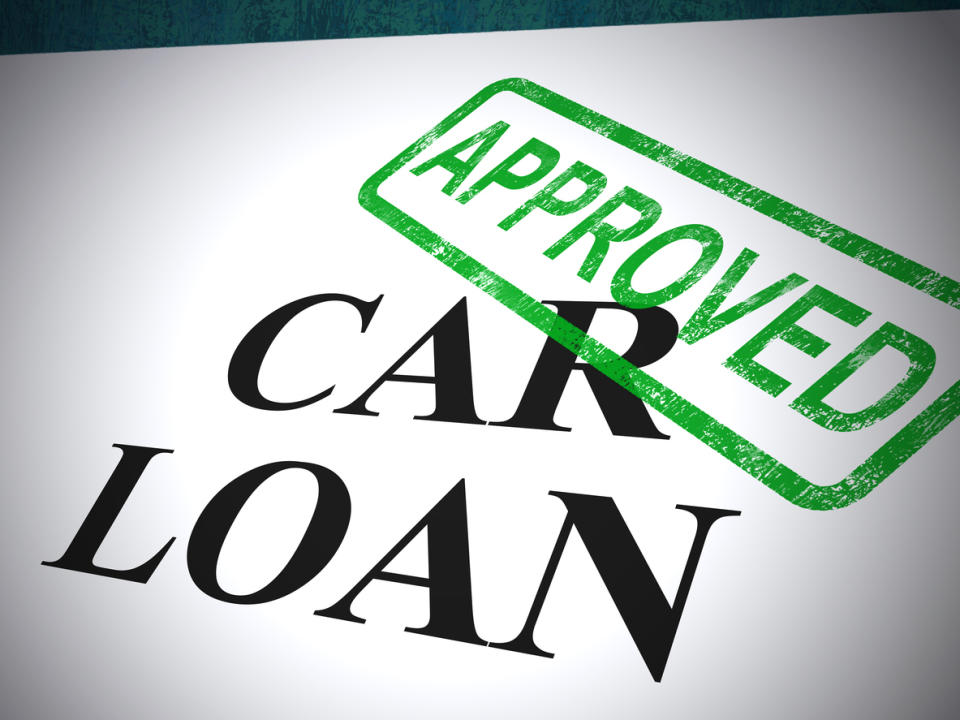How to Find the Right Car Loan

It’s time to buy a new car, but you’re not flush with cash. You need to figure out how to get a car loan. Whether you’re thinking new or used, securing a car loan is one of the first steps you should take in the car-buying process. Breaking the process down into pieces rather than trying to tackle it all at once makes it easy. Here’s everything you need to know about how to get an auto loan with the best rates, even if you don’t have the best credit score.
Determine Your Credit Score
The first step toward getting a car loan is determining your credit score. This can also be referred to as your “FICO score” and is a numerical representation of your credit history. The three major credit reporting agencies – Equifax, Experian, and TransUnion – will each provide a free credit report and your FICO credit score once per year. Another option is to check with your bank or credit card companies. Many of these institutions also provide a free credit report and will tell you your credit score.
The credit report also contains a record of your credit history, including any items that are hurting (lowering) your credit score. Any previous car purchases, including the auto lenders’ names, will be listed, along with the car payment amount, interest rate, and other loan terms. If you’ve missed a car payment in the past, the financial institution likely reported it to the credit bureau, and you’ll see it here.
If your credit score is low, don’t panic. You can boost the number. Start by making sure you make your credit card and loan payments -- particularly any existing auto loan payments -- on time. Take care of any past-due accounts, and pay down the balance on your loans if you can, especially any revolving credit accounts. You should also avoid opening new accounts, as frequent inquiries to the credit bureaus seeking new credit can hurt your credit score.
A good credit score isn’t required to secure a car loan, but as a borrower seeking a competitive annual percentage rate (APR) on the interest you’ll pay, good credit is critical. If a bad credit score is causing a higher APR you might consider a co-signer. A co-signer, usually a close relative or very good friend, can agree to be responsible for making loan payments if you don’t, which can lower an otherwise high interest rate.
Get Pre-Approval
You should always get pre-approved for a loan before you visit the first dealership. A pre-approval means a lender has fully reviewed your credit and loan application to determine a likely loan amount and interest rate. During the pre-qualification process, the lender doesn’t look at your credit in as much detail. They’ll still give you an interest rate and a loan amount, but there’s a good chance the exact auto loan terms you’ll get, once your loan is fully approved, can change.
Determine How Much Car You Can Afford
The amount of money a lender is willing to let you borrow, and the amount you can afford to borrow, are not necessarily the same number. How much you can afford is something you need to determine long before your car purchase.
As a general rule, your car payment should not be more than 10% of your take-home pay, and your total car expenses (fuel, maintenance, insurance, registration) should not surpass 15 percent of your take-home pay.
Many sites offer a free auto loan calculator, where you can quickly determine a car payment based on the purchase price, down payment, and interest rate. Consider the impact of that monthly car payment on your overall budget. If your monthly take-home pay is $4000, your car payment shouldn’t be more than $400, and your total monthly car expenses (including the payment) should be more than $600. If the loan terms, including principal payment, interest, and any additional fees, are cutting it too close, take out a smaller car loan, even if the bank is willing to loan you more.
Consider a Down Payment
A down payment reduces the amount of the loan you need to take out, and that reduces your monthly payment. This also reduces the overall interest you’ll pay on the loan. While that can help make a car easier to afford, don’t empty your savings account. Be sure to keep enough money on hand for whatever surprises might come your way.
New or Used?
When buying a vehicle, you have the choice of buying a new or used car. One of the big perks of new cars is the reduced likelihood of unexpected repair bills. They also come with new car warranties that protect you for a limited time. A new car loan can also mean a lower interest rate, especially if the manufacturer is offering incentives to sell a specific model. These could include zero percent interest if you have a good credit score. Used cars might not be as reliable, though many now come with their own manufacturer (CPO) warranties to set your mind at ease. (Check out our guide to learn more about Certified-Pre Owned cars and if they are worth it.)
And while new cars are sold exclusively through dealers, which can often arrange an auto loan, used cars can be purchased from a dealer or a private party. A private party purchase will require you to arrange your own car loan terms, but you already did that, as we suggested above, right?
Finally, keep in mind the depreciation on a new car means there’s a much greater loss in its value in the first few years after purchase compared to a used car. If you’re going to keep your new car for the life of the loan, which will likely be between 5 and 7 years, that’s not a concern. But if you decide to switch cars earlier the vehicle’s depreciation represents a significant ownership cost, beyond interest charges, insurance, maintenance, etc. If you plan to switch cars every few years you’ll save a lot of money buying cars that are at least 3 years old. Keep in mind that cars depreciate at different rates, so buying a car that best holds its value is a smart purchase decision.
Do Your Research
A car is a major purchase, so do your research before you decide which model to buy. Seek out online reviews to see what experts think about the car you’re considering. It’s also good to research consumer reviews to see if people who did buy your car are happy or if they have complaints about reliability.
Test Drive at the Dealership


 Yahoo Autos
Yahoo Autos 